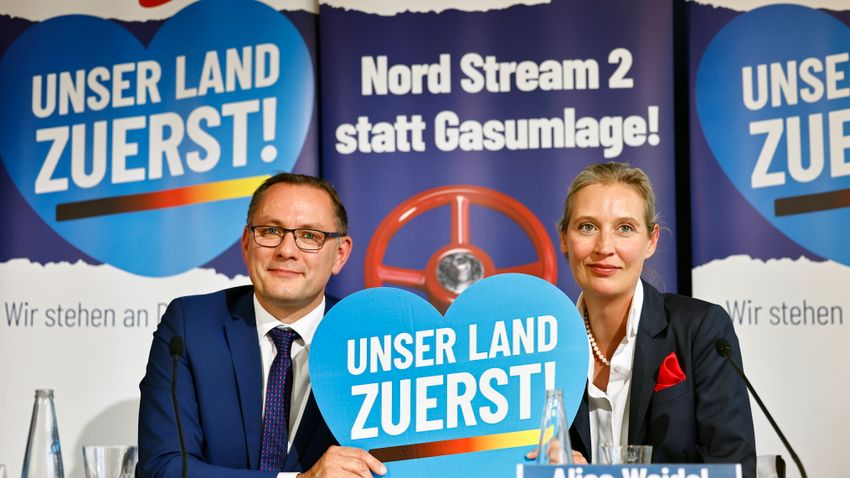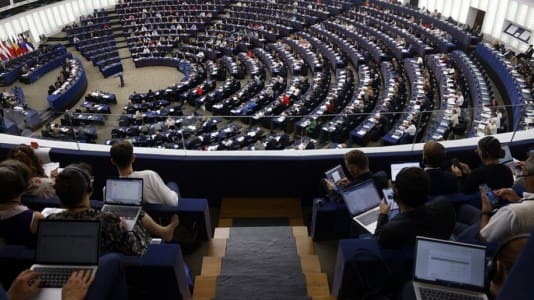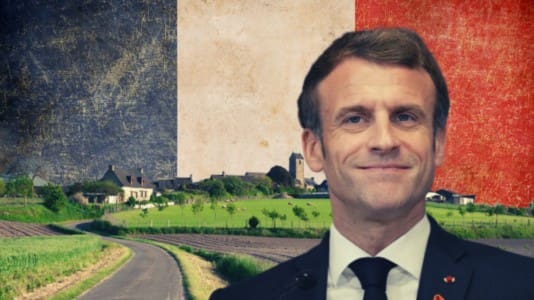Germany’s right-wing Alternative for Germany (AfD) party has been given a substantial boost by its anti-sanctions policy while also condemning Russia’s invasion of Ukraine, daily Magyar Nemzet writes.
AfD, which won 10 percent of the vote in last September’s German elections, now stands at 14 percent in recent polls.
“Even if the gas tanks are full, we will only have enough gas for three months. What comes next? Instead of ideology, a real policy based on facts should be pursued,” AfD MP Steffen Kotré told the Russian news agency TASS, referring to the fact that Germany, like other EU countries, may face an energy shortage in the winter due to the sanctions.
Russian gas deliveries to Germany are still significantly lower than the usual level in recent years. Transport on the Nord Stream 1 pipeline connecting Russia with Germany has completely stopped, and the start-up of the recently completed Nord Stream 2 pipeline was suspended by the German government a few days before the Russian troops entered Ukraine. The AfD demands that the German government start the pipeline.
“If it turns out that the burdens of people with little money and lower middle-class families cannot be reduced, then the AfD can become the mouthpiece of the protesters again after a long time,” political scientist Julia Reuschenbach told the Reuters news agency.
According to a survey published in August by pollster INSA, 65 percent of Germans fear that there could be mass demonstrations and riots in the fall and winter due to the energy crisis. INSA also found that while previously 75 percent of Germans said they would not vote for the AfD under any circumstances, this percentage has now dropped to 61 percent.
At the other end of the political spectrum, the radical left-wing parliamentary party Die Linke is faring less well — according to surveys, it would barely pass the 5 percent parliamentary threshold — and the party is threatened by a split due to internal disagreements about the war. Former faction leader Sahra Wagenknecht harshly criticized the sanctions, or, in her words, “the economic war started by Germany.” In addition, Wagenknecht called the German government the stupidest in Europe.
“Of course, the war against Ukraine is a crime. But how silly is the idea that we can punish Putin by pushing millions of German families into poverty and destroying our economy while Gazprom makes record profits?” she asked. Since the current leadership of Die Linke does not share Wagenknecht’s views, the party’s separatists could form a new party under the leadership of the former faction leader in time for the 2024 European Parliament elections.





